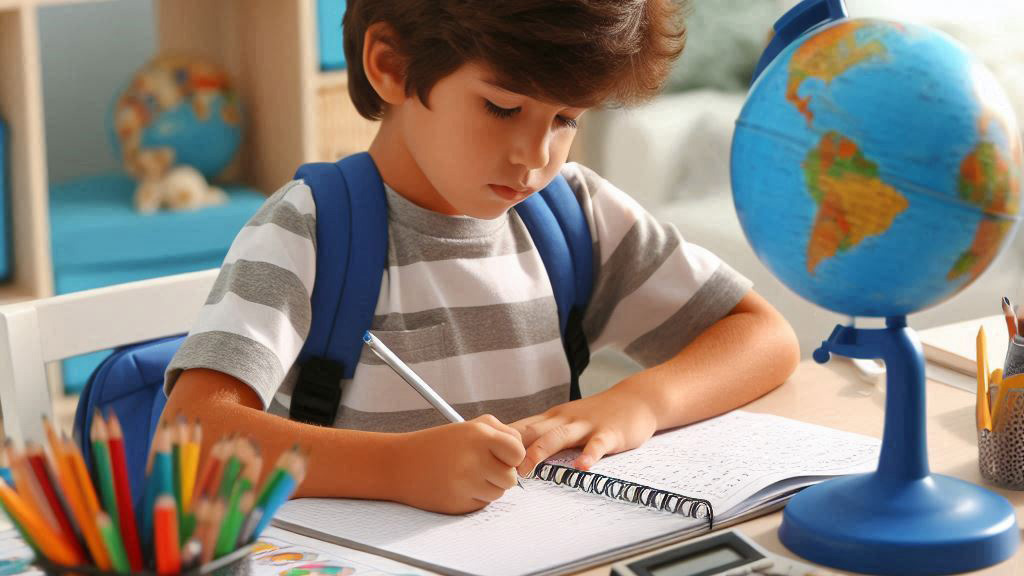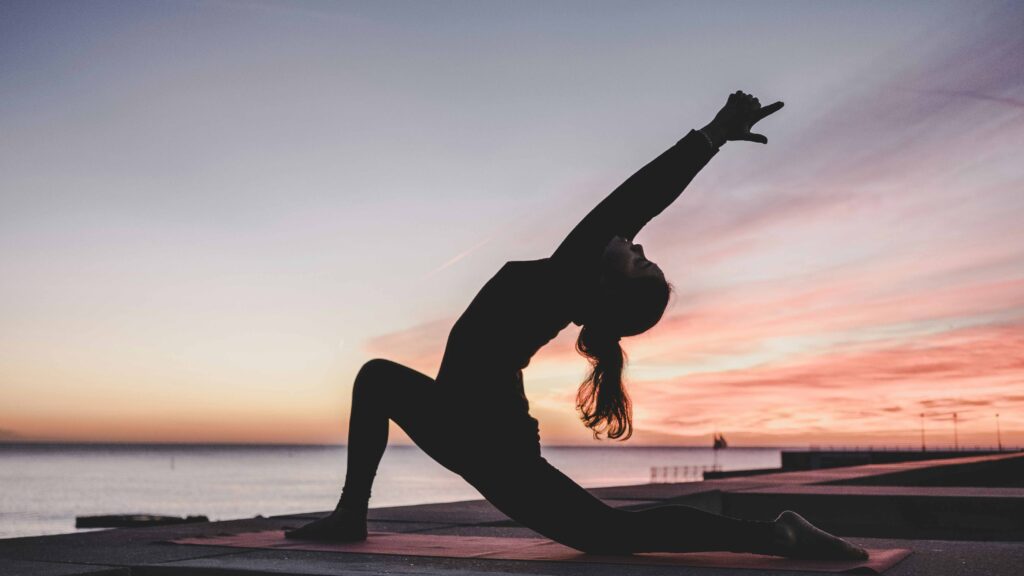The start of the 2024 school year can be an exciting time, but it can also generate symptoms of stress and anxiety in students of all ages. Here, from Eurocolegio Casvi International Private School, we offer you some tips to combat stress and start the new academic year with peace of mind.
PREPARATIONS FOR THE START OF SCHOOL 2024
Preparation is essential to reduce the symptoms of stress and anxiety that can arise before the start of the 2024 school year. Here is a detailed guide to help you feel more confident and prepared:
1.- REVISION OF SCHOOL MATERIAL
Before school starts, it is important to check and prepare all the necessary school supplies. This includes: books and notebooks, school supplies, backpacks… Organise your things so that you can easily access what you need during your school education.
2.- ORGANISATION OF THE STUDY SPACE
If well organised, it can make a big difference to your ability to concentrate and reduce stress and anxiety. Here are some tips on how to achieve this:
- Find a place in your home where you can study without distractions. It should be quiet and free from disturbing noises.
- It should be well lit. Natural light is ideal.
- Use a comfortable chair and desk that allows you to maintain good posture and avoid physical discomfort that can increase stress and anxiety.
- Mantén tu espacio de estudio ordenado. Utiliza estanterías, cajones y organizadores para guardar tus materiales.
3.- PLANNING AND TIMETABLES
Having a clear plan and a set schedule can help you feel more in control and reduce the symptoms of stress:
- Familiarise yourself with the school calendar for the school year 2024. Make a note of important dates such as exams, assignments and school events.
- Establish a daily schedule that includes time for study, homework, rest and extracurricular activities.
- Set realistic goals and objectives for the new course. This will give you a clear direction and motivate you to stay focused.
4.- MENTAL AND EMOTIONAL PREPARATION
At the start of the school year, it is important to take care of your mental and emotional well-being with a positive attitude. Visualise success and think about the things that excite you about the new school year. Also, practice relaxation techniques such as deep breathing, meditation or yoga to stay calm and reduce anxiety.
5.- APOYO SOCIAL
Talk to your friends, family and teachers about your worries. Having a support network can make a big difference in how you combat stress.

ESTABLISHING A SLEEP ROUTINE TO AVOID STRESS SYMPTOMS

A good night’s sleep is essential to combat stress and anxiety. Try to go to bed and get up at the same time every day, even before school starts. During sleep, the body and brain recover and prepare for the next day. Adequate sleep can: improve memory and concentration, reduce stress and anxiety and strengthen the immune system.
TIPS FOR ESTABLISHING A DAILY ROUTINE
- Gradual Adjustment: If you have been going to bed and getting up later during the holidays, adjust your sleep schedule gradually. Go to bed and get up 15 minutes earlier each day until you reach your desired schedule.
- Create an environment conducive to sleep. Make sure your room is dark, quiet and at a comfortable temperature.
- Avoid screens at least an hour before bedtime: The blue light emitted by phones, tablets and computers can interfere with the production of the sleep hormone melatonin.
- Establish a relaxation routine before bedtime. This can include activities such as reading a book, taking a warm bath or practising relaxation techniques such as meditation or deep breathing.
- Avoid caffeine and sugary foods in the hours before bedtime, as they can interfere with your ability to fall asleep.
- Regular exercise can improve sleep quality. However, avoid intense exercise just before bedtime, as it can have the opposite effect.
- Avoid long naps: If you need to take a nap, try to keep it short (20-30 minutes) and avoid sleeping too late in the day, as this can affect your ability to sleep at night.

RELAXATION AND MINDFULNESS TECHNIQUES
Practising relaxation techniques such as deep breathing, yoga or mindfulness can be very effective in reducing symptoms of stress and anxiety, especially before the start of the 2024 school year. Dedicate a few minutes every day to these practices to stay calm and focused. Be consistent and adapt them to your needs. Not all techniques work the same for everyone.

DEEP BREATHING
It is a simple but powerful technique to combat stress. Here are some steps to practice it:
- Find a quiet place
- Inhale deeply through your nose, filling your lungs with air. Feel your abdomen expand.
- Hold the air in your lungs for a few seconds.
- Exhale slowly through your mouth, emptying your lungs completely. Feel your abdomen contract.
- Repeat this deep breathing cycle several times, concentrating on your breathing and letting go of any stressful thoughts.

YOGA
Yoga combines physical postures, breathing and meditation to promote relaxation and well-being. Here are some yoga postures that can help you as a treatment for stress:
- Child’s pose (Balasana): Kneel on the floor, sit on your heels and stretch your arms forward, resting your forehead on the floor. This pose is excellent for relaxing the back and mind.
- Downward Dog Pose (Adho Mukha Svanasana): Get into a four-legged position, lift your hips up towards the sky and stretch your legs and arms. This pose helps to release tension in the back and shoulders.
- Corpse pose (Savasana): Lie on your back with your arms and legs extended and relaxed. Close your eyes and concentrate on your breathing. This pose is ideal for ending a yoga session and promoting deep relaxation.
MINDFULNESS
Mindfulness is the practice of being present in the moment and accepting your thoughts and feelings without judgement. Here are some techniques you can incorporate into your daily routine:
- Mindfulness meditation: Sit in a quiet place, close your eyes and focus on your breathing. Notice how the air moves in and out of your body. If your mind becomes distracted, simply refocus on your breathing.
- Body scan: Lie down in a comfortable place and close your eyes. Start by concentrating on your toes and slowly work your way up your body, paying attention to the sensations in each part. This technique helps to release accumulated tension.
- Mindfulness in daily life: Practice mindfulness in your daily activities, such as eating, walking or doing the dishes. Focus on sensations, sounds and smells.
OPEN COMMUNICATION WITH PARENTS AND TEACHERS TO REDUCE STRESS SYMPTOMS
Open and honest communication with your parents, teachers and friends is a powerful tool for combating stress and anxiety, especially in the run-up to the start of the 2024 school year. Expressing your fears and anxieties can ease the emotional burden and reduce stress symptoms. On the other hand, receiving support and understanding from your loved ones makes you feel accompanied and supported. In addition, parents, teachers and friends can offer practical advice and strategies for managing stress and adjusting to the start of the school year. Follow these strategies:
- Speak honestly about your feelings and concerns. Don’t be afraid to express what you really feel.
- Communication is a two-way process. Listen carefully to what others have to say and show interest in their opinions and advice.
- Find quiet, undistracted times to have these conversations. Avoid talking when you are very stressed or when the other person is busy.
- Express your thoughts clearly and respectfully. Avoid using aggressive or defensive language.
- Do not hesitate to ask questions if you need more information or clarification. This shows your interest and helps you understand the situation better.
EXTRACURRICULAR ACTIVITIES AND FREE TIME

It is essential to find the right balance between study time and free time for recreational activities. To do this, create a schedule that includes time to study, do homework and participate in extracurricular activities.
Make sure you set aside enough time to rest and relax. On the other hand, identify the activities that you enjoy the most and that bring you the most well-being and prioritise them. But don’t forget to pay attention to your body and mind’s cues. Don’t forget to pay attention to your body and mind’s signals. If you feel overwhelmed or exhausted, take a break and spend time on activities that relax you and make you feel good.
Participating in extracurricular activities that you enjoy, such as sports, music or art, can be a great way to combat stress.
- Sports: Participating in sports such as football, basketball, swimming or athletics not only improves your physical condition, but also releases endorphins, the happiness hormones, which help reduce stress.
- Music: Playing an instrument, singing in a choir or being part of a band can be a great way to express your emotions and release tension.
- Art: Activities such as painting, drawing, sculpture or photography allow you to channel your creativity and relax.
- Theatre and dance: Participating in plays, dance classes or dance groups can be a fun way to express yourself and improve your confidence.
- Clubs and associations: Joining clubs for debate, science, literature or any other interest can provide you with a space to learn and share with other students.

HOW DOES EUROCOLEGIO CASVI INTERNATIONAL PUBLIC SCHOOL DEAL WITH STRESS AND ANXIETY?
At Eurocolegio Casvi International Private School, we understand the importance of addressing the symptoms of stress and anxiety in our students. We have emotional and psychological support programmes thanks to our Guidance Department. These are aimed at students at all stages: Preschool Education, Primary Education, Secondary Education, Baccalaureate and Diploma Programme.
Our aim is to provide a safe and welcoming learning environment. Here, each student will be able to develop fully and face the start of the 2024 school year with confidence and peace of mind.
Our teachers can also be a great help in managing symptoms of stress and anxiety and adjusting to the start of term. If you are feeling overwhelmed by homework or exams, talk to them as they can offer additional study strategies and resources.
If you have any special needs or difficulties, please also inform your teachers or members of the Guidance Department. They can help you to make adjustments and provide the necessary support.
Finally, take advantage of tutorials and meetings with your teachers to discuss your progress and any concerns you may have.

